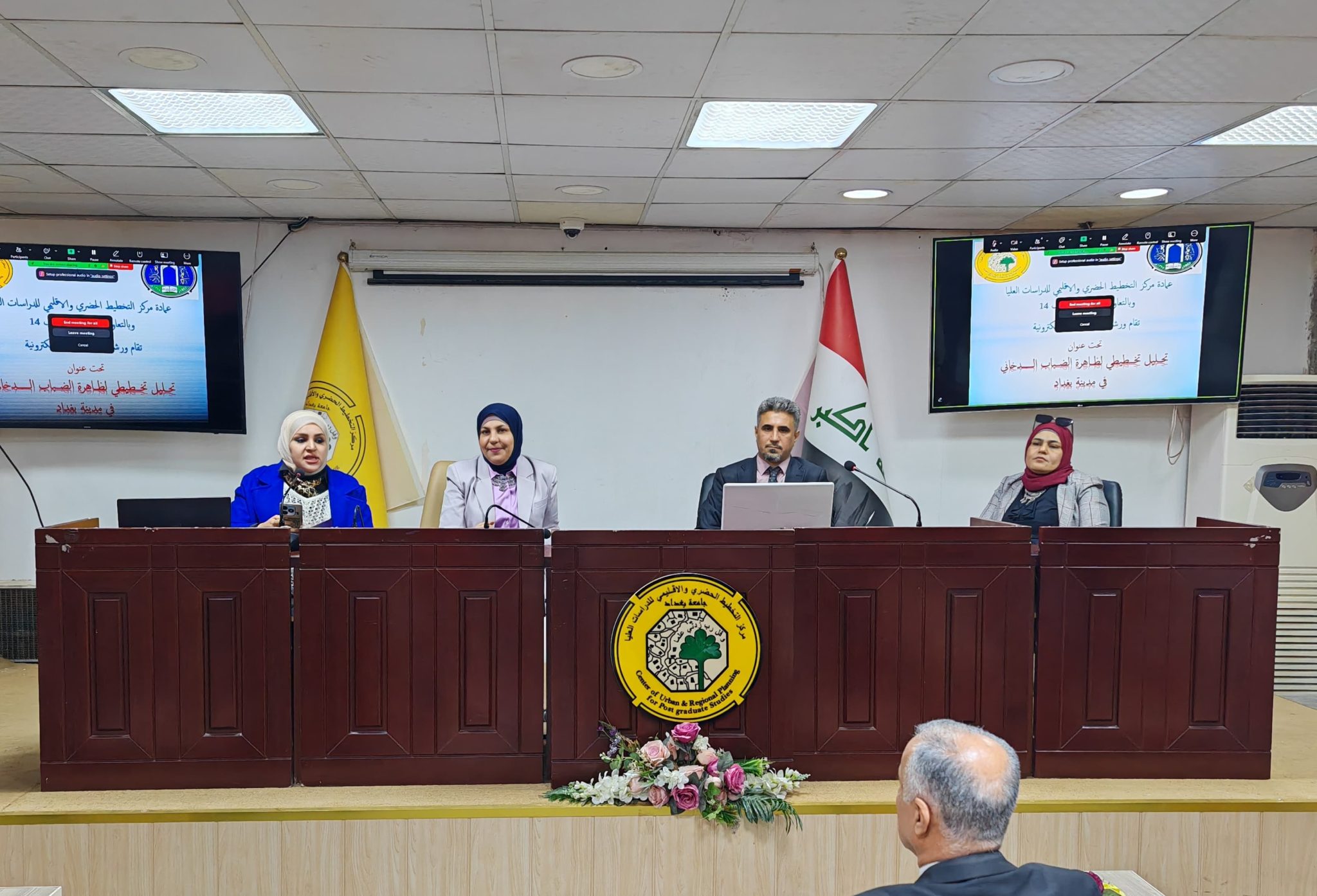The Center of Urban and Regional Planning for Postgraduate Studies at the University of Baghdad held a scientific workshop, in cooperation with some young ambassadors, entitled (Planning Analysis of the Smog Phenomenon in the City of Baghdad), presented by a group of the center’s instructors from various specializations, in the presence of representatives of the Dora Municipality and a group of the center’s instructors and students. The workshop aimed to study the reasons for the recent increase in air pollution rates in Baghdad and to develop planning solutions to them to be submitted to the competent authorities and decision-makers. The workshop was initiated by the center’s assistant professor, Dr. Suad Jaber, who confirmed the noticeable increase in air pollution rates in Baghdad in the recent period and the spread of sulfur smells in it and its sense by people in the light of polluted climatic conditions.
Professor Dr. Nada Khalifa presented a paper in which she explained the sources of polluting gases in Baghdad, according to the Ministry of Environment, such as the Dora refinery, power generation stations, brick and asphalt factories, landfills, and metal smelting furnaces east of Baghdad, Assistant Professor Shamous Abdul Sattar discussed the role of municipalities in reducing the phenomenon of the sulfur-polluted cloud in Baghdad and even in a number of governorates, and the role of Prime Minister Eng. Mohammed Shia Al-Sudani in forming a special committee that includes experts from the Ministry of Environment and Oil, the Baghdad Municipality, and the Ministry of Electricity to study this pollution. For his part, Assistant Professor Dr. Abbas Hashem Sahen stressed the importance of relocating factories, plants, power generation stations and the Dora refinery outside the capital, and encouraging afforestation campaigns and green spaces during urban planning for cities.
The recommendations were in the form of planning procedures that will be submitted to the relevant authorities and decision-makers to emphasize the adoption of clean energy instead of the current one, and the use of sustainable and mass transportation, with the importance of recycling waste in a healthy manner, with the adoption of environmentally friendly industries as an alternative to the current polluting industries in light of the adoption of afforestation campaigns and the protection of agricultural areas from violations.
